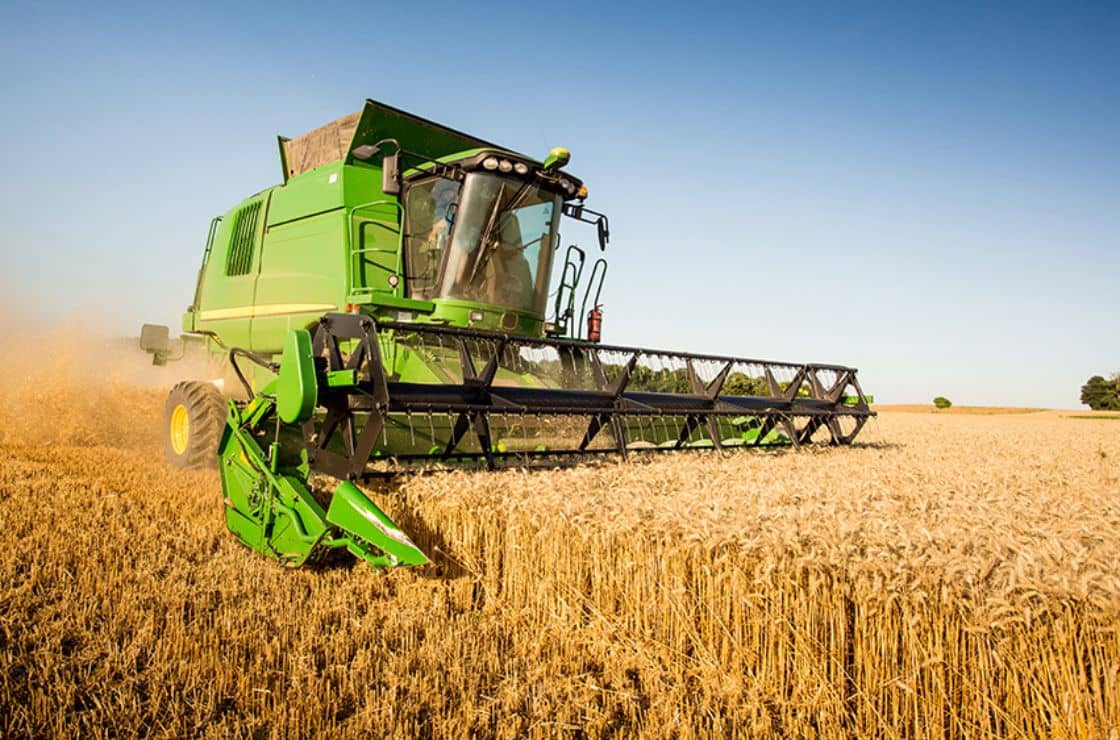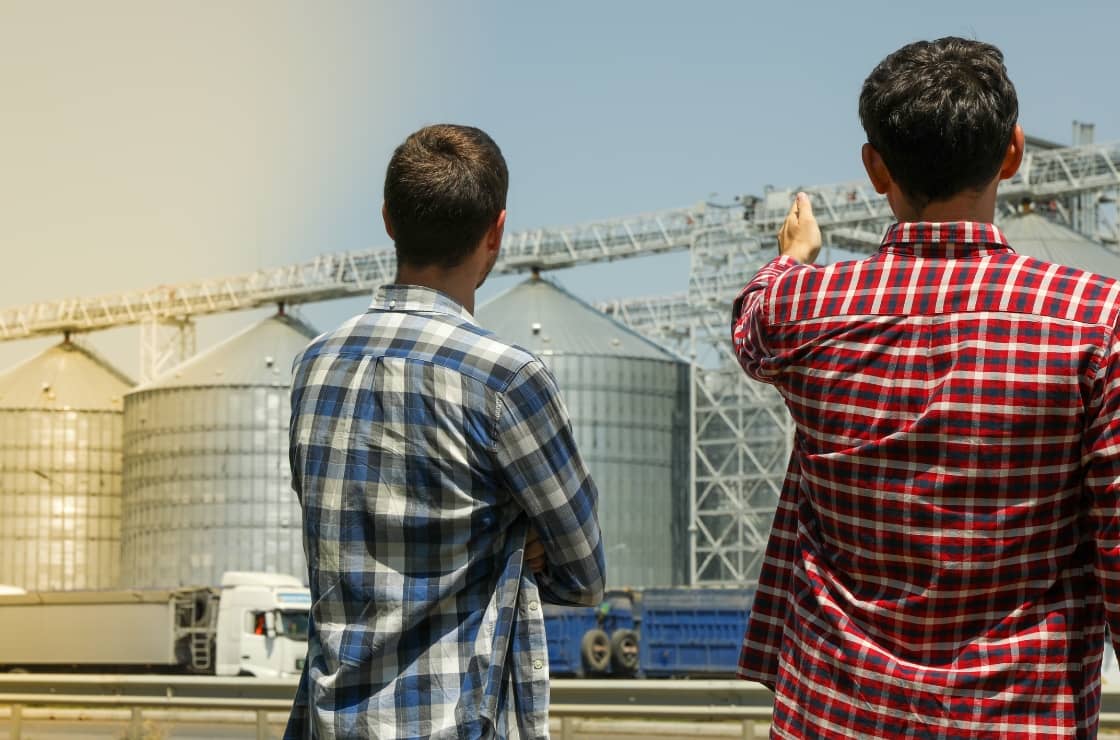
In 2017, Congress passed changes to tax laws that will significantly affect trades of agricultural machinery and equipment. Before you can fully understand how the new laws will affect your farming operation, you need to take a look at the past law.
Previous Laws Related to Capitalization of Boot on a Trade
Prior to 2018, when machinery or equipment was traded for like property, no gain or loss was recognized on the trade as the trade was considered to be a like-kind exchange. The boot on the trade plus any remaining basis of the traded asset would be capitalized and depreciated over the useful life of the asset, or accelerated depreciation could be taken using bonus depreciation (if the asset was new) or Section 179. Let’s look at an example: Farmer John trades a tractor for a new model. The old tractor has a fair market value (trade value) of $90,000, and the new tractor has a fair market value of $150,000. The old tractor has been fully depreciated and has zero remaining basis. Under the old tax law, Farmer John would depreciate the boot of $60,000 paid on the trade of the tractor. No gain would be recognized on the trade value of $90,000.
Capitalization of Traded Personal Property Under the New Tax Law
Under the new tax law, personal property is no longer eligible for like-kind exchange treatment. Therefore, when machinery or equipment is traded for like property, gain or loss will be recognized on the traded asset, and the full cost of the new asset will be depreciated over its useful life or accelerated depreciation can be taken using bonus depreciation (on new or used property) or Section 179. Let’s look at an example under the new tax law: Assume the same facts as above. In this situation, Farmer John will recognize a gain of $90,000 on the trade of the tractor. He will then depreciate the full $150,000 cost of the new tractor using regular depreciation, bonus depreciation, Section 179, or any combination thereof. With the ability to use bonus depreciation and Section 179, Farmer John will be able to reach the same outcome as he would of under the old tax law.
How Recent Changes Will Effect Personal Property Taxes
Under personal property tax law, the cost of the personal property asset listed on the federal depreciation schedule is used as the cost of the asset for personal property tax purposes. Under the old tax law, when there was a trade for like property, the boot on the trade was capitalized and, therefore, was the cost of the asset for personal property tax purposes. However, under the new tax law, the full cost of the asset will be reported on the federal depreciation schedule, and, therefore, the full cost of the asset will be reported for personal property tax purposes.
Let’s look at an example of the effect on personal property tax using the same facts as above: Under the old tax law, Farmer John would have added the new tractor on his personal property tax return at a cost of $60,000 (the boot on the trade). However, under the new tax law, the new tractor will be capitalized at the full cost of $150,000. This will be the value used for personal property tax. As you can see, this has a negative effect by adding an additional $90,000 of value to the personal property tax return.
The Nebraska legislature did enact a change to the personal property tax laws in 2018 that effectively will continue to allow like-kind exchanges on personal property, but only for property expensed under Section 179 during 2018 or 2019. "For purchases of depreciable personal property occurring on or after January 1, 2018, and before January 1, 2020, if there is an election to expense the depreciable property under Section 179 of the code and similar personal property is traded in as part of the payment for the newly acquired property, the Nebraska adjusted basis shall be the remaining net book value of the property traded in, plus the additional amount that was paid by the taxpayer for the newly acquired property."
Now that the rules have changed, you may need to provide additional information to your tax preparer, including invoices from your machinery and equipment trades/purchases. Changes in tax laws make it more important than ever for the owners/operators of ag-related businesses to communicate with their tax preparers. If you have any questions on this topic, please contact us.
Recent News & Insights
Update: Tax Highlights of “The One, Big, Beautiful Bill”
From Seed to Scale: Tax & Operational Strategies for AgTech Startups
Case Study: A Smarter 401(k) Strategy for a Busy Doctor's Office
Recruiting medical talent? Know the Tax Implications of Modern Compensation Packages



.jpg?width=300&height=175&name=Mega%20Menu%20Image%20(1).jpg)
%20(1).jpg?width=300&height=175&name=Mega%20Menu%20Image%20(2)%20(1).jpg)
%20(1)-Mar-08-2024-09-27-14-7268-PM.jpg?width=300&height=175&name=Untitled%20design%20(6)%20(1)-Mar-08-2024-09-27-14-7268-PM.jpg)

%20(1)-Mar-08-2024-09-11-30-0067-PM.jpg?width=300&height=175&name=Untitled%20design%20(3)%20(1)-Mar-08-2024-09-11-30-0067-PM.jpg)
%20(1).jpg?width=300&height=175&name=Mega%20Menu%20Image%20(3)%20(1).jpg)
%20(1).jpg?width=300&height=175&name=Mega%20Menu%20Image%20(4)%20(1).jpg)
%20(1).jpg?width=300&height=175&name=Mega%20Menu%20Image%20(5)%20(1).jpg)
-Mar-08-2024-08-50-35-9527-PM.png?width=300&height=175&name=Untitled%20design%20(1)-Mar-08-2024-08-50-35-9527-PM.png)


.jpg)




